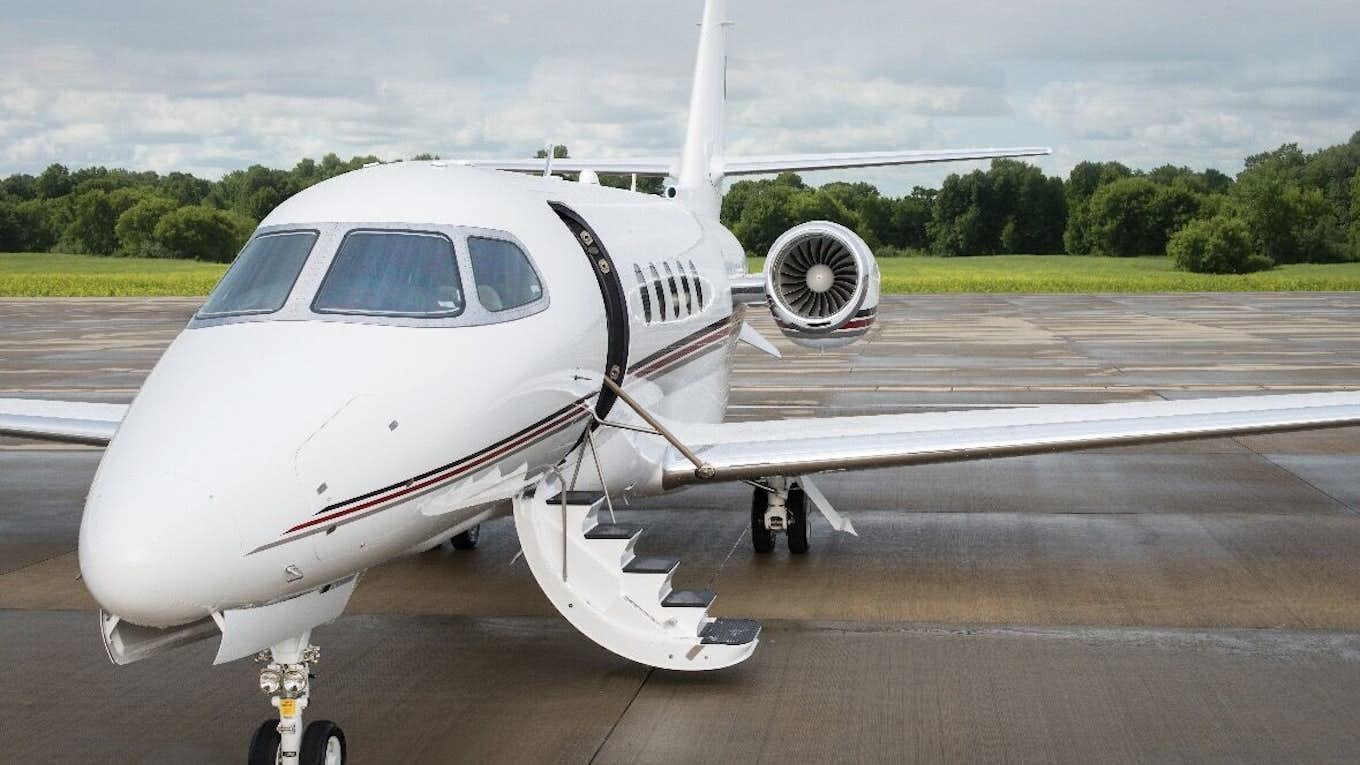
NetJets cost.

Private jet short-hops on select aircraft this summer just got cheaper. In an email to its fractional shareowners and jet cardholders, NetJets said it is eliminating the 60-minute minimums for flights. There is no daily minimum. The waiver is valid for the life of your jet card, and on peak days as well.
That means a 30-minute flight is now billed at 42 minutes. That’s 30 flight minutes + 12 minutes for taxi time. The standard 60-minute minimum includes 12 minutes of taxi time.
Recently, NetJets cut the hourly cost on its Phenom 300 Elite Card to $6,756 per hour. That means the price for a 30-minute flight had been $6,756.
Under the waiver, new flight cost would be $3,378 + $1,351 taxi time = $4,729 for a one-way. Savings would be approximately $2,027 each way, or $4,054 roundtrip, excluding any airport-related fees.
In this scenario, the discount is 30%. Multiplied by eight roundtrips, you would save over $32,000.
So where can you fly and save?
Using our Private Jet Online Flight Time Calculator, without winds, we found some ideal routings. Flying time on a light jet from Westchester County Airport to Martha’s Vineyard is 26 minutes. From Chicago Executive Airport to Door County, Wisconsin, or in California, San Jose to Monterrey, both clock-in at 30 minutes.
The new policy applies to the Citation Latitude and XLS, each seating seven, and the Phenom 300, seating six in the NetJets’ configuration.
Earlier this year, NetJets added the Latitude, Challenger 350 and 650 to its jet card line-up. Last summer, it added the Citation Sovereign and Phenom 300.
It also now offers all its jet card aircraft types, which it sells under the Marquis Jet banner, in Elite and Classic formats. You can buy either 25 or 50 hours.
The Classic jet cards have a 10-hour call-out, no peak day surcharges, and 30 peak days. The Elite cards have a lower hourly price point but carry a 24-hour advance window for bookings. They have 45 peak days and a 25% surcharge on those high-demand dates.
The new policy was announced in an email from NetJets’ president Patrick Gallagher earlier today. In it, he also swiped at private aviation companies taking CARES Act monies.
Gallagher wrote, “We have observed others in our industry badly bruised by the pandemic as the recipients of CARES Act monies have become public. The names on the list and amounts received have been eye-opening.”
He continued, “It reminds us just how fortunate we are at NetJets, and it has affirmed that our disciplined approach to growth over the years was the right decision. NetJets was well-positioned going into this crisis, and the critical steps we have taken make us stronger for the future.”
Earlier this week, Kenn Ricci, principal of Directional Aviation, whose OneSky Flight unit includes Flexjet, Sentient, and PrivateFly, appeared to chastise NetJets.
He said, “We are disappointed that some of our largest peers who would have qualified for PSP funding did not apply. They, too, could have had more capital to support employees, suppliers, vendors, and more importantly, our industry’s growth.”
Ricci continued, “No matter how much capital you have, you would be remiss if you didn’t take an opportunity to inject more capital into the opportunities available in our industry. We think failure to obtain funds under the PSP is an opportunity missed for them to do their part to position the industry for a better, stronger post-Covid-19 future.”
(Editor’s note: The above quote was erroneously attributed to Mr. Gallagher and has now been updated to reflect it was made by Mr. Ricci.)
OneSky received $84 million.
Ricci’s comments followed a dig by Vista Global Holdings’ chairman Thomas Flohr. In the letter to customers, he linked to an article from Aviation International News reporting on layoffs at NetJets’ European subsidiary.
Two weeks ago NetJets said it would begin testing all its pilots for Covid-19. For an A to Z update of how jet card operators and brokers are stepping up health safety policies, you can read our roundup here.
